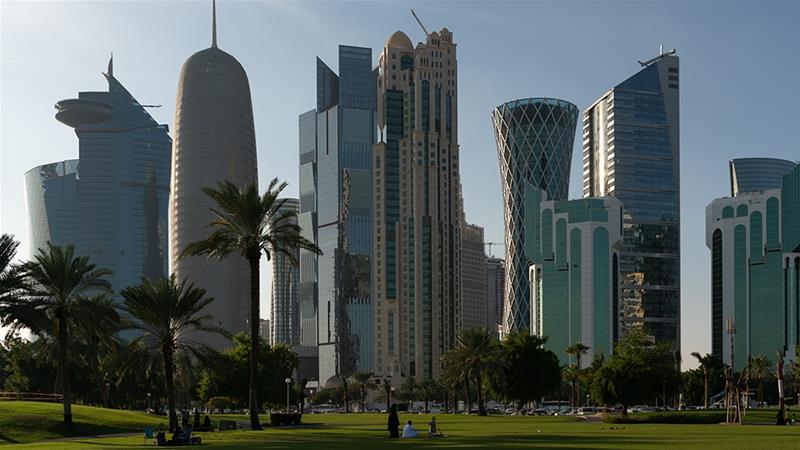
Reports of Qatar leaving Gulf bloc 'incorrect and baseless'
Qatar denies GCC leaving reports as it prepares to mark three years of blockade by Saudi Arabia, UAE, Bahrain and Egypt.
Qatar has denied reports that it plans to quit the Gulf Cooperation Council (GCC) as it prepares to mark three years of a blockade imposed by its neighbours Saudi Arabia, the United Arab Emirates (UAE), Bahrain and Egypt.
However, the gas-rich state cautioned that the effort by three of the GCC's six members to isolate Qatar economically and politically meant people in the region were "doubting and questioning" the organisation.
More:
'Obvious disinformation': Observers debunk Qatar coup claims
Qatar says talks to end Gulf crisis were suspended in January
Qatar FM: 'Too early to talk about real progress with Saudi'
"Reports claiming that Qatar is considering leaving the GCC are wholly incorrect and baseless," Qatar's assistant foreign minister Lolwah al-Khater told AFP news agency on Thursday.
"Such rumours must have originated from people's despair and disappointment with a fractured GCC, which used to be a source of hope and aspiration for the people of the six member countries," she said.
"As we are reaching the third year of the illegal blockade on Qatar by Saudi, UAE and Bahrain, there is no wonder why the people of the GCC are doubting and questioning the GCC as an institution. Qatar hopes the GCC will once again be a platform of cooperation and coordination. An effective GCC is needed now more than ever, given the challenges facing our region."
Saudi Arabia, the UAE and Bahrain, along with non-GCC member Egypt, cut diplomatic, economic and travel ties with Qatar in June 2017 over their insistence that Qatar was too close to Iran and backing hardline movements.
Qatar rejected the charge and refused to budge on the 13 demands made by the blockading nations. The demands included the closure of the Doha-based Al Jazeera Media Network, and shutting a Turkish base in Qatar.
The dispute will enter its third year on June 5.
"Qataris are asking themselves what benefit a membership in the GCC still has, as the organisation has been usurped by Saudi Arabia and the UAE to coerce the smaller states into followership, while no initiative is being made to bring the Gulf crisis to an end," said King's College assistant professor Andreas Krieg.
Oman and Kuwait are the other two members of the body, which oversees regional economic and military coordination, along with Qatar and its regional rivals.
Meanwhile, Qatar has reiterated to the United Nations Security Council the blockade affects security and stability of the region.
The meeting on Protection of civilians in armed conflict was held virtually on Thursday and was attended by Qatar's permanent representative to the UN, Sheikha Alya Ahmed bin Saif Al Thani.
"The unjust blockade imposed against it threatens the security and stability of the region, violates international law and contradicts the orientations of the international community," Sheikha Alya said in a statement.